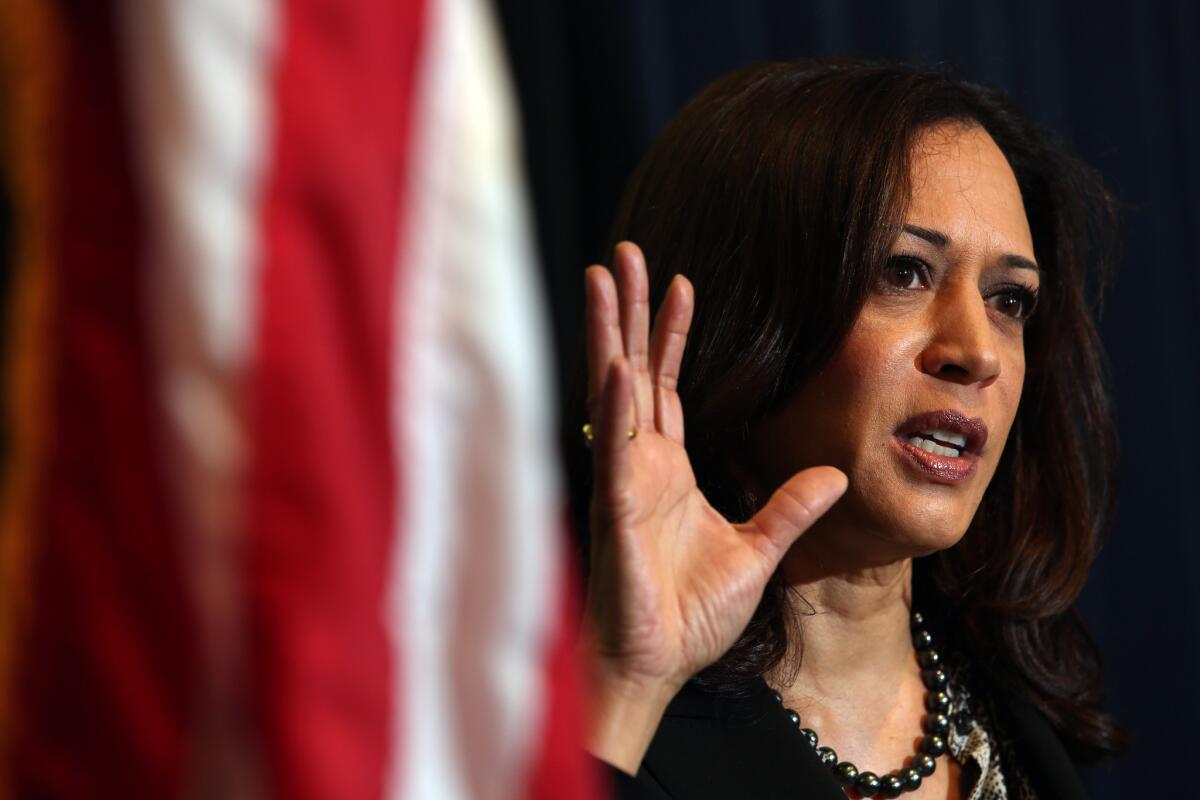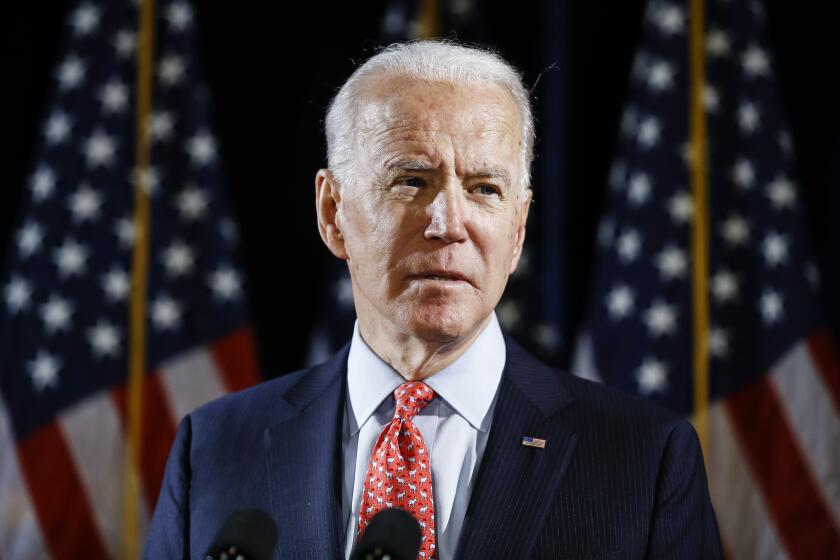Kamala Harris proposes legalizing marijuana, ending bail, eliminating death penalty

Democratic presidential candidate Kamala Harris unveiled a proposal Monday to broadly reform the criminal justice system aimed at ending mass incarceration, helping felons reintegrate into society and increasing oversight of police and prosecutors.
The senator and former California attorney general plans to legalize marijuana, eliminate the death penalty for federal crimes, end federal mandatory minimum sentencing, scrap the cash-bail system, reduce the incarceration of juveniles, stop the use of private prisons and clear the nationwide rape kit backlog during her first term.
Many of these proposals would have been considered radical a decade ago, but are broadly in line with Democratic leanings today.
Harris “provides a comprehensive strategy to transform the criminal justice system to make it more fair, more effective and absolutely make it more equitable,” said Ron Davis, a Harris advisor and former police chief who served in President Obama’s administration.
Davis added that Harris’ life experience gives her a unique perspective.
“The senator has the benefit of not only being a prosecutor, but also a black woman in this country who understands criminal justice from all sides and all angles,” he said.
The field is down to Joe Biden now that Bernie Sanders ended his presidential campaign. Here is the Democrat heading for a battle with President Trump.
Harris’ proposal is of special interest because her candidacy is largely based on her background as an Alameda County prosecutor, San Francisco district attorney and California attorney general.
Critics have accused Harris of failing to do enough to protect defendants and poor people while she worked in law enforcement, a criticism she has dismissed as overblown.
She does have a record of tackling reform, such as a successful program called Back on Track that she created in San Francisco that was aimed at young adults who were facing their first felony charge for low-level drug dealing. But Harris’ most vocal and forceful embrace of criminal justice reform came after she left law enforcement.
Her newly released proposal includes elements that contradict earlier stances. For example, she would create a national board to review police shootings and use federal money to incentivize states to conduct independent investigations of officer-involved shootings.
As attorney general, Harris opposed legislation that would have required her office to investigate fatal police shootings, and denied pleas from activists to look into the fatal shooting of two young black men by police in Los Angeles and San Francisco.
Harris appeared to anticipate that her proposal would be questioned given her past positions.
“Kamala has previously supported independent investigations as California’s Attorney General, for example, when she submitted a budget proposal to the Governor that would fund 3 California Department of Justice teams to investigate officer-involved shootings statewide,” the plan says.
Gov. Jerry Brown did not include Harris’ proposal in his budget.
Harris’ new plan recommends funding to help police departments buy body cameras. Although she did make officers of the small police department she controlled as attorney general wear body cameras, Harris opposed legislation requiring all agencies in the state to do so.
The proposals about body cameras and police-shooting investigations are two of more than a dozen in Harris’ plan that use federal money to prod state and local agencies to take action. She did not say how much these efforts would cost or identify funding sources. The Harris campaign did not respond to questions about funding.
Rivals for the Democratic nomination, including Sens. Elizabeth Warren, Bernie Sanders and Cory Booker, have released plans similar to Harris’.
Harris’ backers argue that her plan goes further because it would fundamentally change how criminal justice is administered in the United States.
“Instead of just trying to deal with one problem — whether it’s officer-involved shootings or the cash-bail system — this is a comprehensive, holistic approach,” said Michon Martin, a former prosecutor who worked with Harris in the San Francisco district attorney’s office and who advised Harris as she crafted the plan. “Kamala talks about reimagining what criminal justice is — still focusing on safety, but making sure the administration of justice is fair for anyone who’s involved in the system.”
More to Read
Get the L.A. Times Politics newsletter
Deeply reported insights into legislation, politics and policy from Sacramento, Washington and beyond. In your inbox three times per week.
You may occasionally receive promotional content from the Los Angeles Times.












